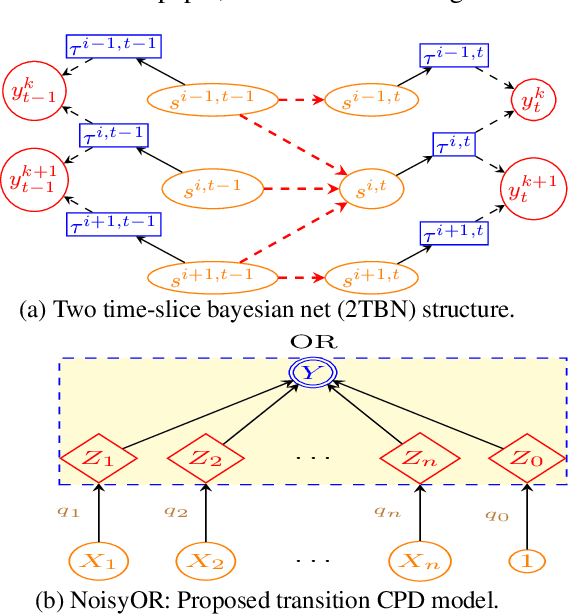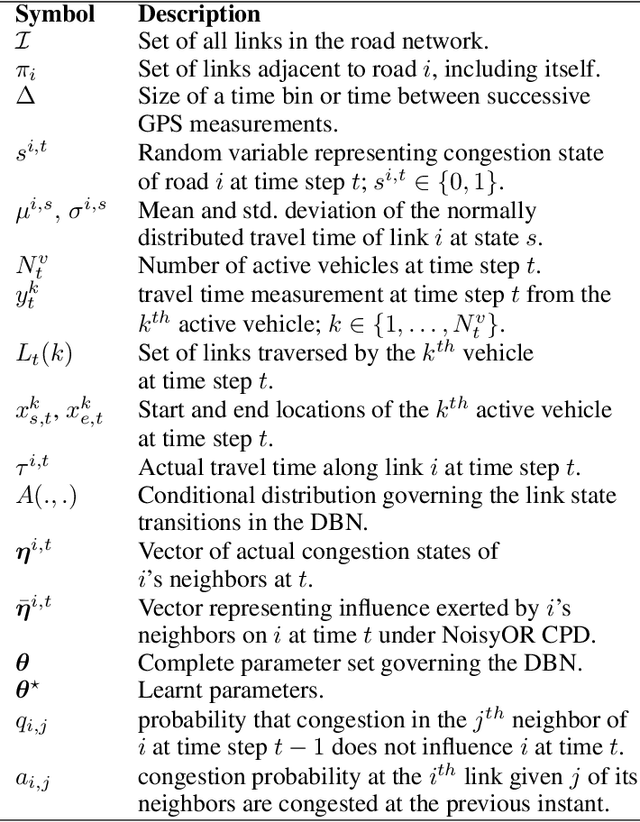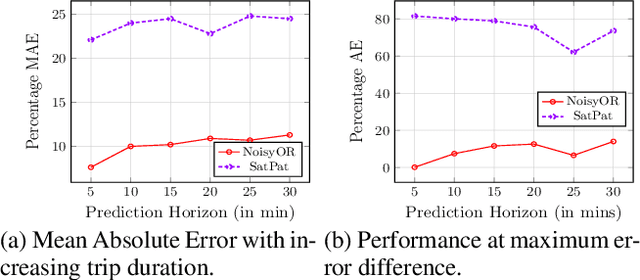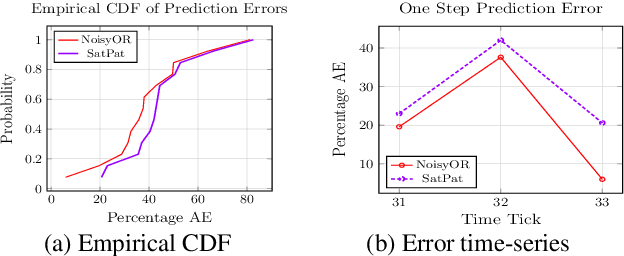Venkatesh Sarangan
Predicting vehicular travel times by modeling heterogeneous influences between arterial roads
Nov 15, 2017



Abstract:Predicting travel times of vehicles in urban settings is a useful and tangible quantity of interest in the context of intelligent transportation systems. We address the problem of travel time prediction in arterial roads using data sampled from probe vehicles. There is only a limited literature on methods using data input from probe vehicles. The spatio-temporal dependencies captured by existing data driven approaches are either too detailed or very simplistic. We strike a balance of the existing data driven approaches to account for varying degrees of influence a given road may experience from its neighbors, while controlling the number of parameters to be learnt. Specifically, we use a NoisyOR conditional probability distribution (CPD) in conjunction with a dynamic bayesian network (DBN) to model state transitions of various roads. We propose an efficient algorithm to learn model parameters. We propose an algorithm for predicting travel times on trips of arbitrary durations. Using synthetic and real world data traces we demonstrate the superior performance of the proposed method under different traffic conditions.
 Add to Chrome
Add to Chrome Add to Firefox
Add to Firefox Add to Edge
Add to Edge